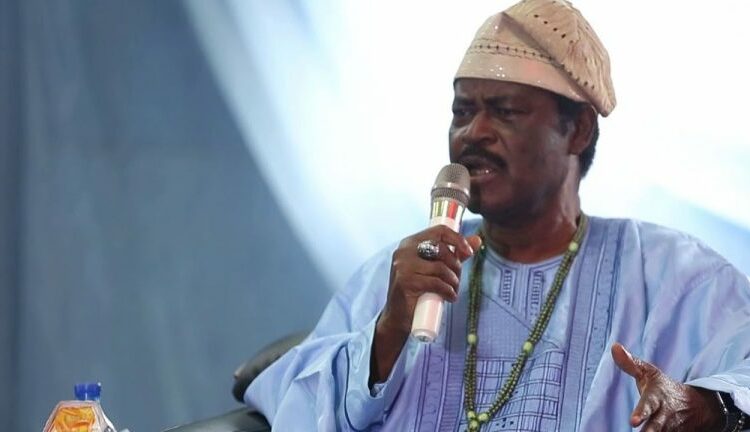A prominent member of Nigeria’s National Democratic Coalition from the military era and a leader in the Yoruba socio-cultural organization Afenifere, Dr. Amos Akingba, voiced his apprehensions regarding Nigeria’s governance since gaining independence, highlighting the persistent interference from Western powers.
In an interview with The PUNCH, Akingba Reflected on the country’s 64 years of self-rule, lamenting the mismanagement of its affairs, criticizing the direction leadership has taken since the initial efforts at independence.
“The first set of leaders tried their best,” he remarked, “but inexperience and subsequent military intervention have left us fractured.”
Akingba emphasized that the nation’s governance has been hampered by an overcentralized federal system, stating, “Everything in Nigeria has been centralized,” he stated. “What we call federalism today is a shadow of what it was meant to be.”
He believes that a true federal structure, one that returns more power to the states and respects ethnic boundaries, is the solution to many of Nigeria’s woes.
According to him, the current system has failed to empower the states, leaving them at the mercy of federal directives.
When asked about the role of Western powers in Nigeria’s internal challenges, Akingba was clear in his belief that they have contributed to the country’s difficulties.
“Western powers have always interfered,” he said. “They place people in leadership who are incapable, and then manipulate them to further their own interests.”
For Akingba, the failure to choose capable leaders has left Nigeria vulnerable to external interference and internal decay.
Akingba’s critique extends beyond external actors to the political elite within Nigeria.
“We claim to have a democracy, but we do not,” he stated bluntly. “Our local governments are not independent, our states are not empowered, and everything flows from the center.”
In his view, Nigeria is not truly governing itself democratically. Instead, the country is still operating under a legacy of militarism, where central control remains the norm.
On the topic of restructuring, Akingba firmly believes that Nigeria must decentralize its governance, advocating for a return to the pre-1966 system of regional government.
“We must go back to the way we governed ourselves before the military’s interference,” he urged. “Without this step, Nigeria is in serious trouble.”
Akingba warned of an impending crisis if the country does not address the deep-rooted issues stemming from overcentralization and a lack of true federalism.
Addressing the current political landscape, Akingba was skeptical of the ability of current leaders to bring meaningful change.
He expressed doubts about President Tinubu’s stance on federalism, despite his involvement in NADECO.
“I’m unsure about the arrangement Tinubu has with those who allowed him to become president,” he admitted.
He referred to the Fulani elite and military as key players in Nigeria’s political landscape, stating, “The people who put him there are watching him.”
In reflecting on Nigeria’s struggles for democracy and human rights, Akingba was pessimistic.
“We are in a serious crisis,” he said, “Poverty, disease, and political instability plague us. We lack political wisdom and sincerity in our leadership.”
For Akingba, the solution lies in revisiting the country’s constitutions from 1962 onward, engaging representatives from all ethnic groups, and amending the constitution to reflect modern realities.
Akingba concluded with a stark warning, “If we don’t make these changes, circumstances will force us to. We cannot expect progress without addressing the fundamental issues at the heart of our governance.”
His message is clear: Nigeria must return to its foundational principles and rebuild its system of government from the ground up, or face an inevitable implosion.
(PUNCH Metro)











Leave a Reply